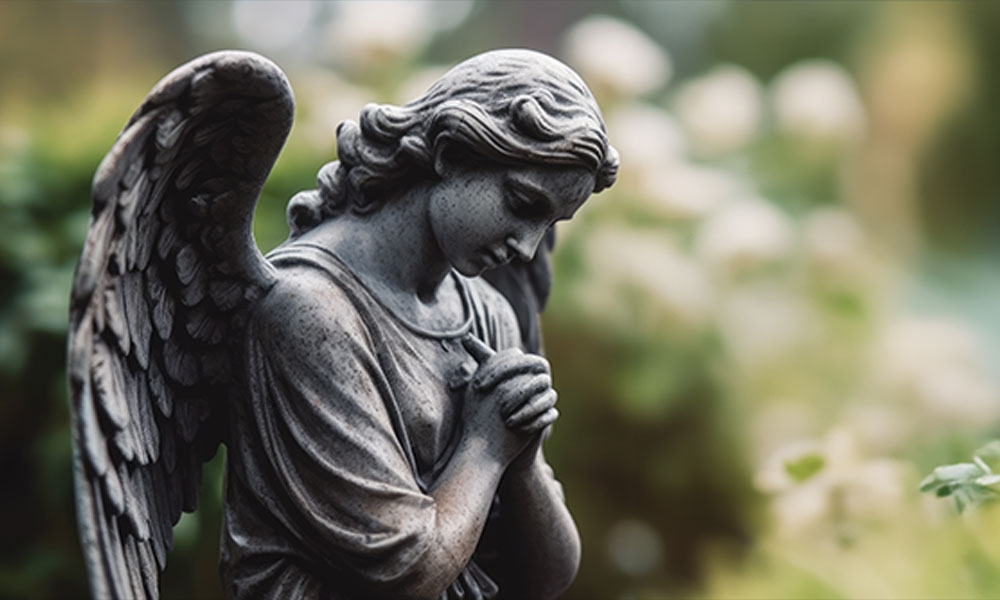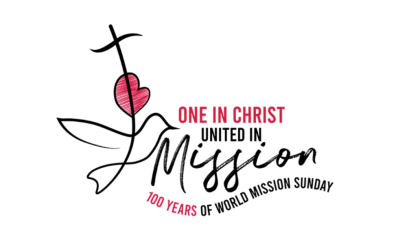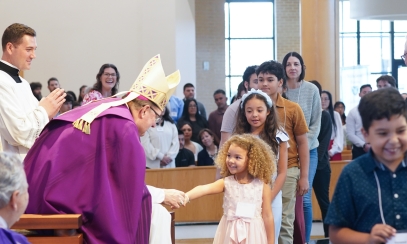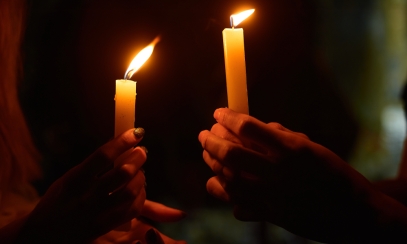
Coping with Loss from Suicide
Deanna Sweeney tried to wish her brother Nicholas a happy birthday on July 1, 2021.
Deanna Sweeney tried to wish her brother Nicholas a happy birthday on July 1, 2021.
“I texted him for his birthday, and he didn't respond. It was not unusual for him not to respond to texts, so I didn't think anything about it at the time,” said Deanna, a parishioner of St. Stephen Catholic Church in Riverview.
A few weeks later, she received the tragic news that Nicholas had taken his own life. She had so many unanswered questions. Why would this happen? Nicholas had no mental health issues as far as she knew.
But she did know that losing his father as an infant left a deep wound in his life.
“He had a hole in his heart,” said Deanna. Despite this, she recalls many good times they shared with family, which is why the suicide was so unexpected.
Her husband, Deacon Mike Sweeney, helped her cope with feelings of loss, anger and shock.
“Mike was my support system,” said Deanna. “He has always been my rock.”
She also finds solace in her faith.
“I trust he’s in a better place. The hole in his heart was filled because he’s with Jesus. This world is not the end,” said Deanna.
She urges anyone who has lost a loved one to suicide to find support groups and to speak about their feelings.
“Don’t be afraid to reach out to people who have gone through this. Don’t withdraw. Pray and have Masses said for your loved one,” added Deanna.
Seeking Help
Suicide is a topic that is rarely discussed.
However, throughout September, mental health advocates, prevention organizations, survivors, allies, and community members unite to promote suicide prevention awareness.
“Stigma is the number one reason people don’t seek the mental health counseling they need,” said Yesenia Rodriguez, Program Coordinator with Catholic Charities Mental Health Services in Tampa.
Rodriguez has a master’s degree in clinical social work and is a mental health counselor. She says Catholics need to be more aware of the causes of suicide and to be on the lookout for those who have been impacted by this growing and tragic trend.
“There are people in our churches, ministries, neighborhoods, workplaces that have possibly lost a loved one to suicide who are in need of empathy, compassion, and prayer,” said Rodriguez, who lost her father-in-law to suicide.
It’s important to reach out to individuals who may be in harm’s way.
“It's always good to ask, ‘What happened to you? Are you doing okay?’ Because believe me, these people are just pleading for help, and we don't realize it,” said Rodriguez.
When Catholic Charities is contacted by someone who is acting or speaking suicidal, team members conduct an assessment and determine if emergency assistance is needed. Emergency services include contacting 9-1-1 for hospitalization to stabilize the individual and to provide life-saving care.
For less urgent cases, those not requiring emergency intervention, counselors work with an individual to create a plan that includes creating a safe space by removing access to items that can be used for self-harm and providing free counseling services to address a person’s sense of hopelessness and thoughts of self-harm.
According to the Centers for Disease Control (CDC), many factors can increase the risk for suicide. Suicide is connected to other forms of injury and violence. For example, people who have experienced violence, including child abuse, bullying, or sexual violence have a higher suicide risk.
“Suicide is caused by mental health [challenges], but it's also caused by crisis situations that people are facing,” said Rodriguez.
She urges everyone to care for their souls, especially those struggling with mental health and crisis situations.
“We need to respect every client's belief, but having a spiritual relationship and nourishing your soul is good for you. For example, this can be prayer, exercise, mindfulness, or gratitude,” said Rodriguez.
Here are some of the warning signs that a person might be suicidal:
- Giving away personal belongings or making a will.
- Speaking about hopelessness, feeling overwhelmed and unable to cope with problems.
- Marks on the arms or legs from self-harm.
- Isolating from others.
- Major depression.
- Lack of sleep or sleeping too much.
- Inconsolable crying.
More about Catholic Charities Mental Health Services
We provide counseling to uninsured, income-qualified individuals and families experiencing mental health challenges, including stress, anxiety, and depression. We offer psychotherapy, cognitive behavioral therapy, solution-focused therapy, mindfulness, and trauma-focused therapy. We utilize coping skills, goal setting, and mindfulness techniques that assist clients in dealing with their problems. We serve residents of the five counties making up the Diocese of St. Petersburg and offer both in-person and tele-health sessions.
These services are made possible with the support of the Diocese of St. Petersburg, Hillsborough County, the City of Tampa, and Florida Blue Foundation.
How to get help
Catholic Charities Mental Health Services
Phone: 813-631-4370
Email: mhservices@ccdosp.org
Counselors are available who speak Spanish.
Additional Resources
- Gracepoint
- Crisis Center of Tampa Bay
- Behavioral Health Northside
- Emergency hotlines: 9-8-8, 2-1-1, 9-1-1
My Catholic Doctor
Mental health care that incorporates spiritual care and treatment for depression, anxiety, obsessive compulsive disorder, addiction, attention deficit, and much more.



